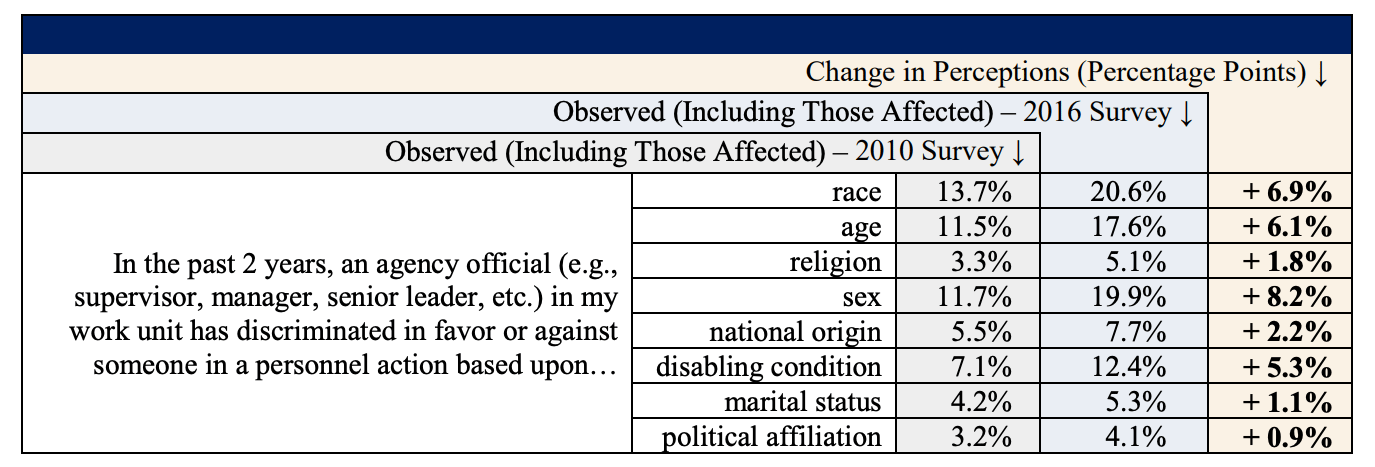
By oatawa / Shutterstock.com
A Growing Number of Feds Think They've Seen Favoritism, Other Prohibited Personnel Practices
Uptick could be at least partially a result of increased awareness, Merit Systems Protection Board concludes.
Federal employees’ belief that they have experienced or witnessed prohibited personnel practices has grown in recent years, the Merit Systems Protections Board found in a new report.
The June 6 report, The Perceived Incidence of Prohibited Personnel Practices, analyzed the results of MSPB’s survey on merit systems principles at agencies in 2016, the first such study since 2010. The agency found that both the perception of prohibited personnel practices and the number of such complaints to the Office of Special Counsel increased from 2010 to 2016.
“The number of individuals reporting that they either observed or were personally affected by a [prohibited personnel practice] increased, from 34% of [Merit Principles Survey] respondents in 2010 to 46% in 2016,” the agency wrote. “In this same time period, [prohibited personnel practice] complaints to the U.S. Office of Special Counsel increased, from 2,415 to 4,124.”
The statistics come with a caveat that analysts cannot determine why these perceptions have increased, and suggested that it could be a result of greater awareness and training regarding what constitutes a prohibited personnel practice.

“In the period between 2010 and 2016, OSC and many employing agencies made a strong effort to ensure employees were educated about the [prohibited practices],” MSPB wrote. “It is possible that this increased education resulted in a better ability by employees to recognize [the practices], and therefore report them. MSPB currently plans to ask questions about the [prohibited personnel practices] again on our next [survey], using the 2016 results as a new baseline.”
Sex-based discrimination increased the most of all prohibited personnel practices witnessed or experienced by survey respondents, increasing from 11.7% in 2010 to 19.9% in 2016. Race-based discrimination remained the most common prohibited personnel practice, at 20.6%, although discrimination based on race, age and disabilities all increased by more than 5 percentage points since 2010.
The perceptions that an agency official gave an unfair advantage to a job candidate, which has consistently been the most widely perceived violation, increased by more than 8 percentage points, from 22% in 2010 to 30.6% in 2016. And perceptions of whistleblower retaliation grew from 8.1% in 2010 to 14.3% in 2016.
MSPB found that perceptions that agency officials engaged in prohibited personnel practices directly led to reduced workplace morale. While 57% of respondents who neither saw nor experienced prohibited personnel practices were engaged at their agency, only 21% of those who observed prohibited practices were engaged, and only 14% of people personally affected by merit systems principles violations were engaged.

“As the data has shown, employees perceiving that their agency engages in [prohibited personnel practices] has a strong relationship to how employees view their work unit and agency as a whole,” the report stated. “In addition to being a violation of law, the commission of a PPP is simply a bad business practice with real-world costs for the organizations that are seen as permitting them to occur.”







